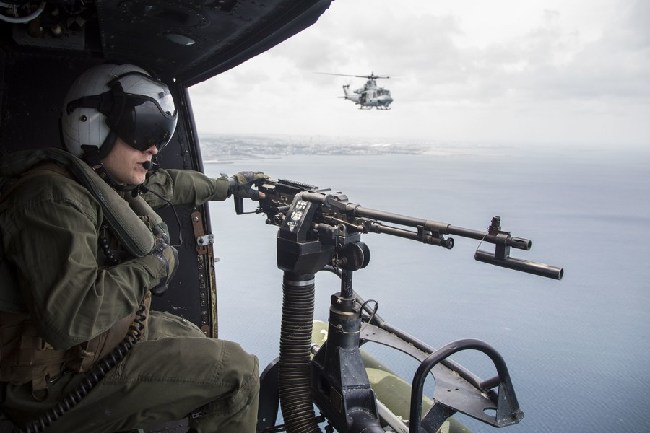
By Du Wenlong
A cluster of COVID-19 cases occurred at US military bases in Japan recently. According to reports, the outbreak in the US military bases in Okinawa Prefecture in Japan is relatively serious and local governments in Okinawa Prefecture have launched a joint protest against this. At the same time, people in the US military bases in Yamaguchi and Aomori have also reported cases. So why did US military bases in Japan become a big loophole in Japan's pandemic prevention? Why is the Japanese government helpless in the face of this situation?
The Japanese government has imposed entry restrictions on more than 120 countries and regions including the US after the global outbreak of COVID-19. However, according to the US–Japan Status of Forces Agreement signed in 1960, the US military is not restricted by such policies and they can still enter Japan. In other words, the US–Japan Status of Forces Agreement puts Japan in a subordinate position, and Japanese law does not restrict the US military in any way. Since the outbreak, the US troops stationed in Japan and related personnel can enter and exit Japan freely. They do not need to be tested for the virus by the Japanese side, and the pandemic prevention measures adopted by the US military are not under Japanese control. This is the main reason for the outbreak of COVID-19 at US military bases in Japan.
The natural psychological advantage allows the US military and related personnel to have no scruples because Japanese law does not restrict them at all. Due to the impact of the pandemic, the US service members need to outrun the current boring life in the base. The so-called health level in this state is not their focus at all, let alone the safety of the Japanese people, so the government's warnings are very pale.
Denny Tamaki, governor of Okinawa Prefecture, requested the Japanese government to stop the US from sending military personnel to Okinawa and provide timely information on the actions of infected persons. He also called for a complete revision of the US–Japan Status of Forces Agreement, including the application of Japanese domestic law to the quarantine work of the US military. However, under the framework of the Agreement, Japan has no choice but to accept the behavior of the US troops stationed in Japan.
From a deeper perspective, the imbalance between Japan and the US is caused by Japan's unfinished normalization. The Japanese military's remote control and strike capabilities rely heavily on the US. Japan also relies heavily on the US in terms of various high-end technologies, nuclear protections, and other strategic protections. Even if Japan's economy continues to move forward, it is still a "dwarf" in terms of capability. Under the oppression of the entire US–Japan Status of Forces Agreement, Japan can only say yes.
The US military power is almost all over the world. US troops stationed overseas enjoy the so-called "extraterritoriality." The domineering and unscrupulous actions of US troops stationed overseas have brought extremely bad effects on local social security and people's lives, not only in Japan, but also in South Korea and Europe. The so-called extraterritoriality is a kind of protection for the US military. No matter what kind of bad incidents by the US troops, local laws do not have any restrictive function on them.
Therefore, the various actions of the US military overseas have no scruples. This situation is very common in its overseas bases and it also makes the local government and people have great dissatisfaction and resentment towards the existence of US troops, since the so-called protection and damage are almost the two sides of a coin.
With growing number of troops stationed overseas, the more frequent operations the US takes, the greater harm it will make to the local area. Therefore, this protection has become a burden. After the end of the Cold War, there was no war threat of large-scale operations and full-scale operations in various places, however, the US is still unwilling to leave. Essentially, the US is seeking for its own global interests, rather than providing so-called protection.













